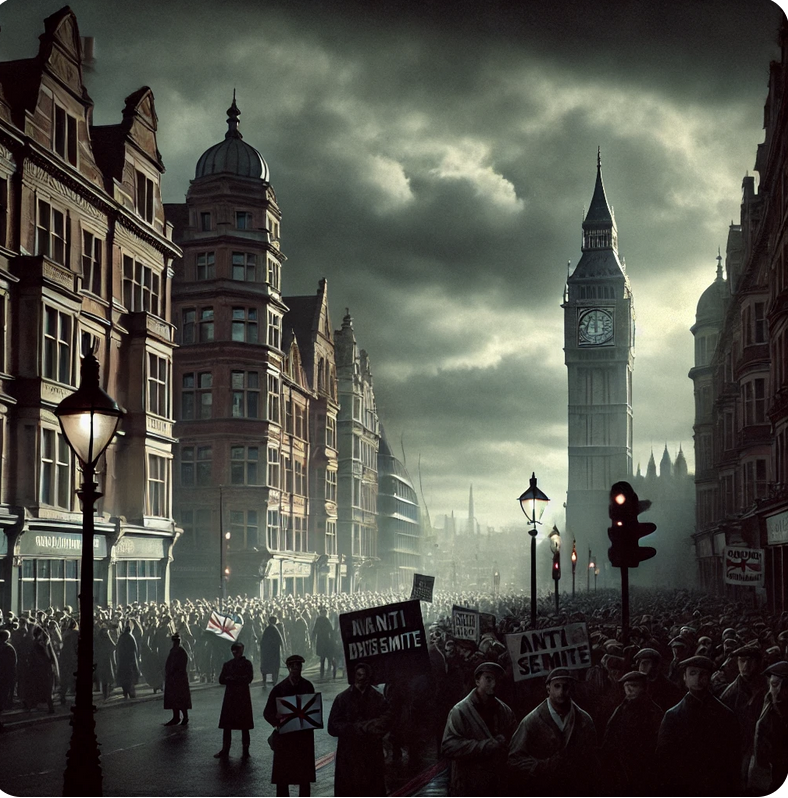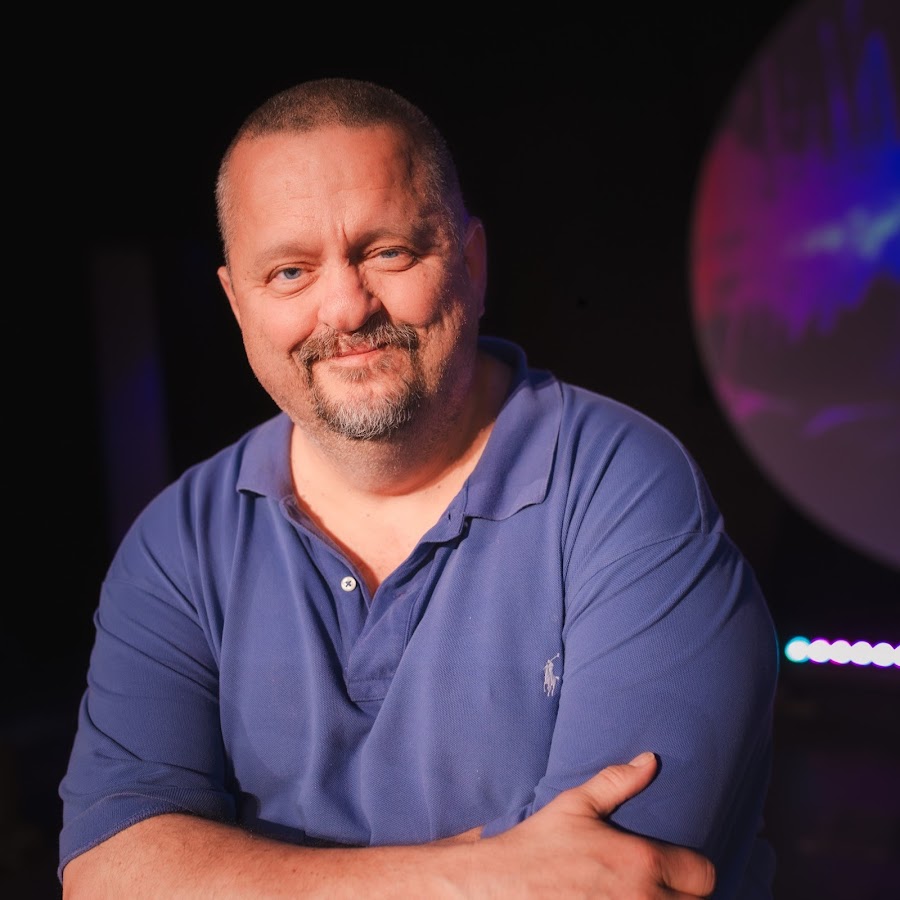

By Dr. Tim Orr
On October 7, 2023, I landed in London, unaware of the unfolding events until I switched on my phone and saw the chaos: Hamas had launched an attack on Israel, and social media was in complete upheaval. While such tragic events seemed almost expected in the Middle East, I never thought they would shake the city of London—a place I associated with civility and the Enlightenment’s ideals of reason. That day shattered my idealistic view of the UK. Over the past year, my perspective has continued to evolve, shaped by unexpected experiences and reflections. I want to share with you the deeper lessons I learned on that unforgettable day and throughout this transformative time.
London is known for its rich history, vibrant culture, and complex social fabric. That day, however, I witnessed an eruption of hatred that laid bare the darkest undercurrents of our time. It was the day following the horrific Hamas attacks on Israel. Instead of witnessing a sad reaction to the loss of Israeli civilian life, I saw something far more disturbing: a celebration of violence rooted in deep-seated antisemitism. As chants of "Free Palestine" filled the streets, it became abundantly clear that these protests were not just about Palestinian solidarity. They had transformed into a spectacle of hatred, where Jewish lives were reduced to mere collateral in the pursuit of an ideological war.
This was not the first time I had encountered antisemitism. As a scholar of Islamic Studies, I have read some about Islamic antisemitism. However, after Oct. 7th, it became my primary research pursuit. I will trace its theological foundations and historical manifestations in the coming years. I am all set to present my research at the upcoming ASMEA conference, where I will explore the ideological roots of Islamic antisemitism in depth. Yet what I saw on October 7 in London felt like something new—an experience that added a personal layer to my academic understanding. It was a moment that drove home the urgency of what we are facing: a global antisemitism that is growing bolder, more entrenched, and more dangerous than ever before.
Beyond Politics: How Antisemitism Was Unleashed Amid Calls for 'Palestinian Solidarity'
Dave Rich, a leading voice on antisemitism in the UK, captured the essence of this terrifying shift during a recent talk titled Antisemitism in the UK since the October 7 Attack. The Institute for the Study of Contemporary Antisemitism at Indiana University put it on. Rich has spent over 30 years working with the Community Security Trust (CST), an organization dedicated to protecting Britain’s Jewish communities. In his talk, Rich pointed out something I had experienced firsthand in London: the antisemitic response to the October 7 Hamas attacks was immediate. Even as news of the violence against Israeli civilians spread, the streets of cities like London filled with people who weren’t mourning the loss of life—they were celebrating it. The protests I saw on October 7 were not a reaction to Israeli military actions, as we’ve seen in previous conflicts. Instead, they were an expression of pre-existing hatred toward Jews, which had merely found a new outlet in the atrocities committed by Hamas.
Rich’s analysis sheds light on a disturbing dynamic: the antisemitic response to conflicts involving Israel has become almost predictable. Every time Israel is at war—whether during the 2014 Gaza war, the 2006 Lebanon war, or the Second Intifada—antisemitic incidents spike worldwide. The assumption has always been that these incidents are reactions to Israel's military actions, fueled by images of Palestinian suffering. But what Rich pointed out—and what I witnessed firsthand—is that the hatred was different this time. The images filling our screens on October 7 were not of Palestinian civilians caught in the crossfire but of Israelis being slaughtered in their homes. And yet, antisemitic attacks around the world began immediately.
The protests I saw in London reflected this twisted dynamic. As I walked through the city, I could feel the palpable excitement among the demonstrators. Cars drove by with Palestinian flags waving out of windows, their drivers honking in approval. Chants of "Free Palestine" filled the air, but something far more sinister was lurking beneath the surface. In one chilling moment, I heard a man shout from his car window, "The war is starting, free Palestine!" His words were not a call for justice—they were a declaration of war, a celebration of the violence that had just unfolded in Israel. To him, the killing of Jews by Hamas was not a tragedy—it was a victory.
Rich explained this phenomenon in his talk, describing how many of those celebrating the violence were not merely reacting to the Israeli-Palestinian conflict. These individuals were already predisposed to antisemitism, and the sight of dead Israelis gave them an excuse to express their hatred. As Rich put it, these people were "excited by the sight and the idea of dead Jews." This is a chilling realization: the protests I witnessed were not about geopolitics or territorial disputes—they were about antisemitism, pure and simple.
Denial and Distortion: The Frightening Global Shift in Antisemitism
What I found even more alarming was the denial of the atrocities committed by Hamas. Despite overwhelming evidence of sexual violence, torture, and the deliberate targeting of civilians, many in the protests refused to acknowledge these crimes. Rich noted that this kind of denialism mirrors the responses we’ve seen in other conflicts, such as the denial of Assad’s chemical attacks in Syria or Russian war crimes in Ukraine. But what makes this particular denial so dangerous is that it is being fueled by a growing global movement that sees Israel not as a nation-state with legitimate security concerns but as a colonial power that must be dismantled at all costs.
Rich spoke about how the discourse surrounding Israel and Palestine has shifted dramatically in recent years. It is no longer about the 1967 borders or the two-state solution. The narrative has shifted to 1948, with many in the pro-Palestinian movement now arguing that Israel should not have existed in the first place. The slogans I heard on October 7—such as "From the river to the sea, Palestine will be free"—reflect this shift. These protesters were not calling for peace or coexistence; they were calling for the complete eradication of the Jewish state. In their minds, Israel is a settler-colonial entity, and Jews are merely settlers occupying stolen land. The implication of this logic is horrifying: if Israel has no right to exist, then the killing of its citizens is not only justified—it is necessary.
As someone who has spent years studying the intersection of religion, politics, and now Islamic antisemitism, I have always understood that the hatred directed at Jews is deeply intertwined with broader ideological currents. But seeing it play out in real time, right before my eyes in the streets of London, brought a new level of clarity to my understanding. The protests on October 7 were not just about Israel—they were about a global struggle against Western capitalism, with Jews caught in the crossfire. As Rich pointed out, the pro-Palestinian movement has aligned itself with groups like Hamas and Hezbollah, not because of a shared commitment to Palestinian rights but because these groups are seen as part of a broader "axis of resistance" against the West.
What I witnessed in London was not just a protest—it was a manifestation of a global antisemitism that is gaining ground in ways we haven’t seen, maybe since the Holocaust. Rich explained that this movement has attracted many supporters, many of whom are not deeply ideological but are drawn to it because it has become fashionable in progressive circles. For them, standing with Palestine is seen as the virtuous, progressive thing to do. But beneath this surface-level solidarity lies a much darker reality: the core of the movement is driven by people who are "all in" on the idea that Jews are the ultimate enemy.
The protests on October 7 were a wake-up call for me. As I prepare to present my paper at the ASMEA conference, titled "Islamic Antisemitism: A Critical Examination of Theological Foundations and Historical Manifestations," I am more determined than ever to expose the dangers of this rising Islamic antisemitism. What I witnessed in London was not an isolated incident—it was part of a broader, global trend that has seen antisemitism become more entrenched, more radicalized, and more dangerous than ever before.
Rich's talk highlighted the importance of understanding the psychological and ideological forces behind this new wave of antisemitism. It is not enough to dismiss these protests as misguided or to attribute them solely to political disagreements. What we are witnessing is a deeply rooted hatred, one that has found fertile ground in the current geopolitical climate. And as the events of October 7 showed, this hatred is not going away—it is only growing stronger.
In the months since that day, I have reflected on the significance of what I saw. I have come to realize that combating antisemitism requires more than just academic research or interfaith dialogue. It requires a concerted effort to expose the ideologies that fuel it, to challenge the narratives that justify it, and to stand up against it, no matter where it rears its head. The events of October 7 were a stark reminder that the battle against antisemitism is far from over—and that we must remain vigilant in our fight to ensure that history does not repeat itself.
Tim Orr is a scholar, Evangelical minister, conference speaker, and interfaith consultant with over 30 years of experience in cross-cultural ministry. He holds six degrees, including a master’s in Islamic studies from the Islamic College in London. Tim taught Religious Studies for 15 years at Indiana University Columbus and is now a Congregations and Polarization Project research associate at the Center for the Study of Religion and American Culture at Indiana University Indianapolis. He has spoken at universities, including Oxford University, the University of Tehran, and mosques throughout the U.K. His research focuses on American Evangelicalism, Islamic antisemitism, and Islamic feminism, and he has published widely, including articles in Islamic peer-reviewed journals and three books.
 YouTube
YouTube
Sign up for Dr. Tim Orr's Blog
Dr. Tim Orr isn't just your average academic—he's a passionate advocate for interreligious dialogue, a seasoned academic, and an ordained Evangelical minister with a unique vision.
No spam. Unsubscribe anytime.
